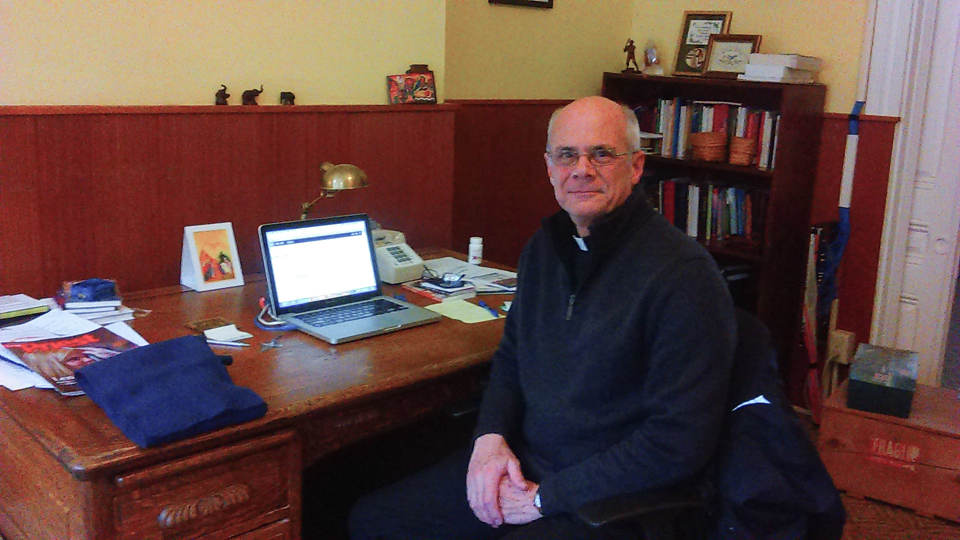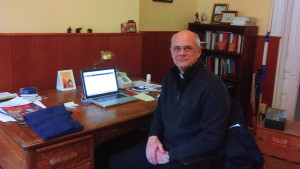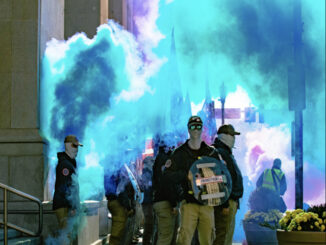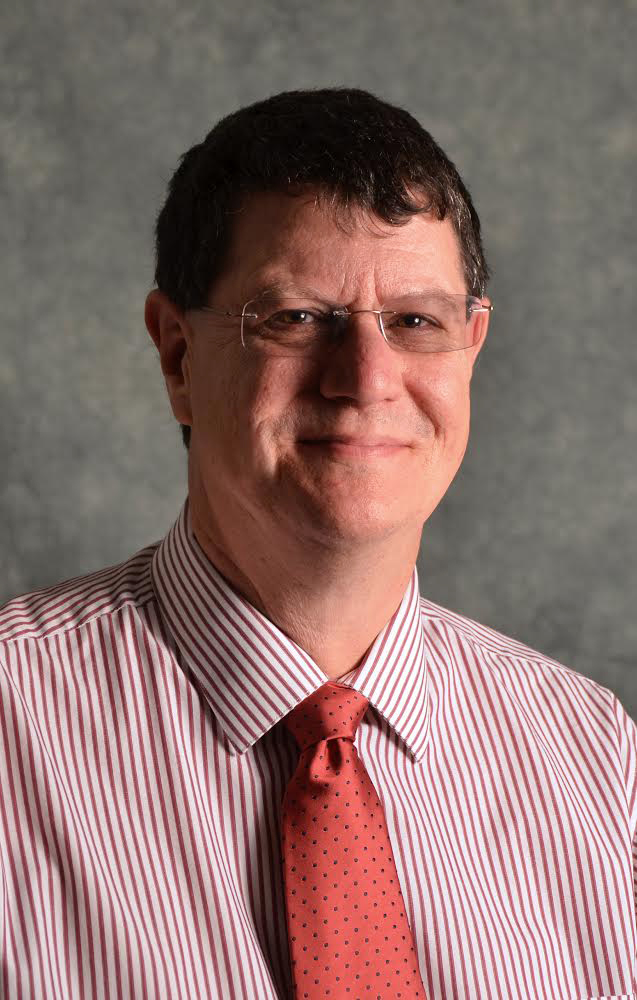

Rev. Dan Walsh, a Spiritan priest at Duquesne, poses for a picture at his desk in Old Main. Walsh is one of several Spiritans recording his life story for posterity.
By Gigi Jeddi | The Duquesne Duke
From the alligator and eel-infested rivers of the Amazon to Laval House on Duquesne University’s campus, Spiritan priests have been helping those in need across the globe since their order was founded in the 18th century.
As part of Duquesne’s annual Founders Week celebration of the Spiritan priests, university archivist Tom White is working with oral historian and Duquesne alumna Megan DeFries to record some of the life stories of Spiritan priests who live on campus. These stories often span continents and involve danger, drama and acts of faith.
For example, DeFries has already interviewed Rev. James Okoye, the director of Duquesne’s Center for Spiritan Studies.
“He grew up in Nigeria and while he was in the seminary lived through the Biafran civil war,” DeFries said. “It’s interesting because it’s something a lot of us wouldn’t imagine experiencing.”
The civil war lead to a year-long famine that killed more than two million people in Okoye’s home country. Okoye went on to continue a life of service in Africa and the United States.
DeFries and White began the oral history project in January 2014. DeFries interviews the priests and records their stories on audio files, which White stores in Gumberg Library.
Rev. Dan Walsh, a third generation Duquesne alumnus, told DeFries about the three years he spent as a missionary in the Amazon rainforest.
“We’d be living in the middle of the rainforest, with piranhas and huge snakes,” Walsh said. “When we’d travel at night and you would shine the big spotlight on the banks, you would see all the eyes of the alligators reflecting the light back to you.”
Walsh and his group traveled along the Amazon River in a broken down boat, which often sprung leaks.
“At night I would have to dive underneath the boat, and pack the holes with mud,” Walsh said. He did his best to avoid the eels and alligators sharing the water with him.
Walsh said his travels impacted him strongly.
“When you come back, people expect you to be exactly the same as when you left, but you have changed,” Walsh said. “Your experience being a missionary changes the way that you look at the world.”
White said it is important to record stories like Walsh’s for future generations to learn about the Spiritans, who are often humble about their own accomplishments.
“The Spiritans being a missionary order often are focused on helping people doing missionary work,” White said. “Recording your own history doesn’t really seem that important at the time.”
According to White, he and DeFries will continue to expand the project for at least the next year.




